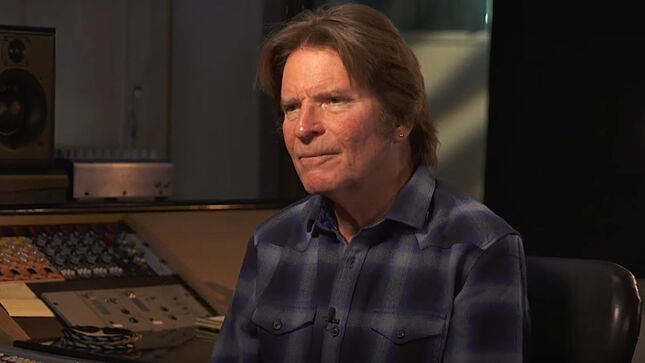
Creedence Clearwater Revival (CCR), one of the most iconic rock bands of the late 1960s and early 1970s, was known for its raw, rootsy sound and a string of timeless hits like *”Bad Moon Rising,” “Proud Mary,”* and *”Fortunate Son.”* But the band’s meteoric rise was matched by an equally dramatic implosion. For decades, fans and music historians have speculated about the reasons behind the group’s sudden breakup in 1972. Now, in a recently surfaced video, frontman John Fogerty reflects on one possible factor: jealousy.
Fogerty, the voice and principal songwriter behind CCR’s success, addressed the long-standing rumors in an interview that has reignited discussions among fans. When asked whether jealousy played a role in the band’s downfall, Fogerty admitted, “I had never even really stopped to think of it that way.” His candid response sheds light on the complex dynamics that may have led to the band’s untimely dissolution.
### **The Rise and Fall of Creedence Clearwater Revival**
CCR formed in 1967, bringing together John Fogerty, his brother Tom Fogerty, Stu Cook, and Doug Clifford. The band’s distinct blend of swamp rock, blues, and Southern-inspired storytelling captured the zeitgeist of an era marked by social upheaval and countercultural movements.
Their success was unprecedented: CCR churned out seven studio albums in just five years, with nearly every release containing multiple chart-topping singles. However, tensions within the band began to surface as quickly as their fame grew.
By the early 1970s, cracks in their unity were becoming increasingly apparent. Tom Fogerty, the rhythm guitarist and John’s older brother, left the group in 1971, citing creative differences. Just a year later, the remaining trio released the poorly received album *Mardi Gras* and announced their breakup.
### **Fogerty’s Reflection on Jealousy and Band Dynamics**
In the recent video, Fogerty was asked directly about the role of jealousy in CCR’s split, a theory that has been debated for years. Some believe that the disparity in creative control—John Fogerty wrote and produced nearly all of the band’s songs—led to resentment among the other members.
While Fogerty acknowledged the possibility of jealousy, he stopped short of definitively naming it as the cause. “It’s hard to look back and dissect all the emotions that were swirling around back then,” he said. “I’ve always been very focused on the music and the vision I had for the band. Maybe that focus made it hard for others to feel equally involved.”
This admission is significant, as it aligns with accounts from other band members. Stu Cook and Doug Clifford have previously expressed frustration over John Fogerty’s near-complete creative control, suggesting that it left little room for collaboration.
### **The Role of Family Dynamics**
Adding another layer of complexity was the familial relationship between John and Tom Fogerty. The brothers often clashed over creative direction, with Tom reportedly feeling overshadowed by John’s dominant presence in the band.
After leaving CCR, Tom pursued a solo career but struggled to achieve the same level of success. Tragically, the brothers’ relationship remained strained until Tom’s death in 1990. In the interview, John hinted at lingering regret over their inability to reconcile. “We were young, stubborn, and maybe didn’t communicate the way we should have,” he reflected.
### **Fans and Historians Weigh In**
The new video has reignited debates among fans and music historians about CCR’s breakup. Many believe that the tension within the band was inevitable, given the pressures of fame and the intense workload they undertook during their brief but prolific run. Others argue that clearer communication and more equitable creative input might have allowed the band to continue.
“CCR’s story is a cautionary tale about the dangers of unchecked ambition and the challenges of balancing artistic vision with group dynamics,” says music historian Larry Jenkins. “Jealousy may have been a factor, but it was likely one piece of a much larger puzzle.”
### **Legacy and Lessons**
Despite their acrimonious split, Creedence Clearwater Revival’s legacy remains intact. Their music continues to resonate with fans worldwide, and their influence can be heard in countless artists across genres.
In recent years, John Fogerty has embraced CCR’s legacy, performing their iconic songs during his solo tours and reflecting on their enduring impact. The video interview, while shedding light on the past, also highlights Fogerty’s personal growth and willingness to revisit painful memories.
“At the end of the day, the music is what matters,” Fogerty said. “We created something special, and that’s what I want people to remember.”
### **Conclusion**
The question of whether jealousy played a definitive role in CCR’s breakup may never be fully answered, but John Fogerty’s reflections provide valuable insight into the interpersonal challenges faced by even the most successful bands. As fans revisit the music and stories behind CCR, the band’s saga serves as a reminder of both the magic and the fragility of creative partnerships.
